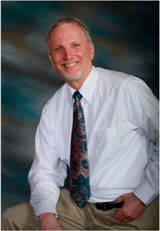The election season is upon us again. This time it’s at the local level – those running for city councils and mayoral positions, for fire districts, for school boards and for the state legislature. The week of May 15-19 was the filing time and in Enumclaw, all city government positions had at least two candidates running, a very unusual occurrence.
The cost to run is 1 percent of a year’s stipend. In Enumclaw, council members earn $4,000 per year. Therefore, the filing fee is $40. Enumclaw mayors make $12,000 a year, so the filing fee is $120. Different levels of government pay different stipends or salaries.
Whatever the pay and whatever the level of government, those who run for office find that eventually their thinking changes. It has to. Several candidates have stated that they’re not politicians. However, once someone runs, the way of thinking begins to be shaped and formed by the pressure of public attention and the desire to win or, at least, not lose. Not losing is a deeper concern for all elected officials, since the experience is so embarrassing and demeaning.
Soon, all candidates began to think politically.
How is thinking politically different from the thinking of average citizens?
First, a candidate or incumbent begins to calculate every decision he or she makes. They ask themselves the question: will saying something hurt me or help me politically? Will the voters be angry at what I say or will they agree with me?
Candidates pick issues to campaign on that will stir people up and gain attention. Telling the truth often takes a back seat to winning votes. Promises are made to voters that may have no basis in reality.
Those running for office need to frame their opponents in negative ways in an attempt to win. The opponent becomes the enemy. Stories and rumors emerge either through research into public records or through outright fabrication about supposed bad decisions made in the past and scandals going back 20 or 30 years. The passage of time has no relevance. What matters is the dirt that can be dug up.
Facts and rumors help to demonize the opposition and hopefully prove to both the voters and to the candidate that integrity is solely held by them. The opponent becomes the epitome of evil.
To those running for office, the election is the center of world news. The campaign consumes more and more time and thought. Strategies are discussed with insiders and campaign advisers.
Everything revolves around the election. Signs are pounded into the ground. Web sites are created. Ads are put in papers. Doorbells are rung. Money is requested. Campaign fliers are attached to doorknobs.
Simplifying complex government issues is an art. Explaining them to voters quickly and clearly so that a sixth-grader would understand them requires a special talent that not all candidates possess. Often caricatures and misrepresentations are more easily comprehended. Black and white answers usually are more effective.
Paradoxically, being vague with answers and statements is also part of thinking politically. The fewer people offended or challenged by what the candidate says, the better it usually is. Specifics create problems. Vagueness and obfuscation are far more effective. Being black and white, while at the same time being vague, is a political art form.
Candidates know from research that most people vote emotionally and intuitively. Logic and analysis is not how most voters (about 80 percent) make decisions. Most voters ask themselves, “Do I like this person? Are they like me?” The more voters can connect emotionally to the candidate, the better chance that candidate has of winning an election.
Most voters, however, don’t pay much attention until after Labor Day weekend. That is the sad reality of elections. Another sad reality is that voters tend to believe negatives about candidates more than they believe positive qualities. Each election season people complain about negative ads, but if those ads weren’t effective they wouldn’t be used.
Political calculation and finding ways not to lose are part of the mindset of all politicians. It comes with political office and is a reality of life in the candidate’s world. This current election season will not be an exception.


